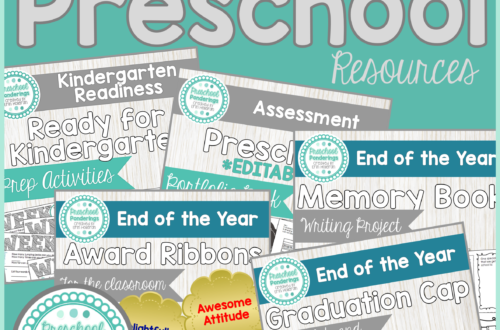Explaining assessment to families
Assessment in preschool is definitely a thing – it’s a huge part of what early childhood educators do every day, but most casual observers would never know that. This is because it’s not obvious. As teachers it important to be able to explain this unique assessment process to parents and family members so that they have a clear understanding of how we know what skills and concepts their child has mastered.
There are two things that make preschool assessments just a little different;
First, preschool assessments should be formative assessments. This simply means that you are using the results of any assessment to plan further activities and learning experiences. These assessment results help you understand which students are ready for more challenging tasks, and which students need extra support. This information helps you tailor your lesson plans to specific students, to ensure that everyone is getting what they need the most.
Second, assessments in preschool work best when they are authentic. Authentic assessments are completed using evidence that is collected regularly in the child’s familiar environment. Instead of sitting with each child individually and asking them questions, teachers observe them as they play and design large group, small group, and individual hands on activities to elicit the information that they wish to learn about the child.
Authentic assessments are valuable because they provide the highest quality results. How many times have you asked a child about a subject that you are sure they are familiar with, only to be met with a blank stare, or a completely different answer than they gave you five minutes prior. Authentic assessments use teachers’ observations, children’s work samples, and other first-hand evidence instead of traditional “testing.”
When families have a better understanding of how assessments are completed, and what they are used for they tend to be more supportive of the practice in general.
It’s also important to remember that even if you share the actual assessment tool with your families, that doesn’t mean they understand it. Educators recognize the jargon, acronyms, and technical terms that assessments are full of, parents don’t use these terms daily, so they may need some explanation. I always encourage parents to ask questions freely, and I answer them seriously. I want all families to know exactly what I’m talking about and leave a conference with fewer questions than they came in with!
How do you explain your assessments to parents? I’d love to hear your approach so feel free to share your favorite blog posts or product links in the comments!



